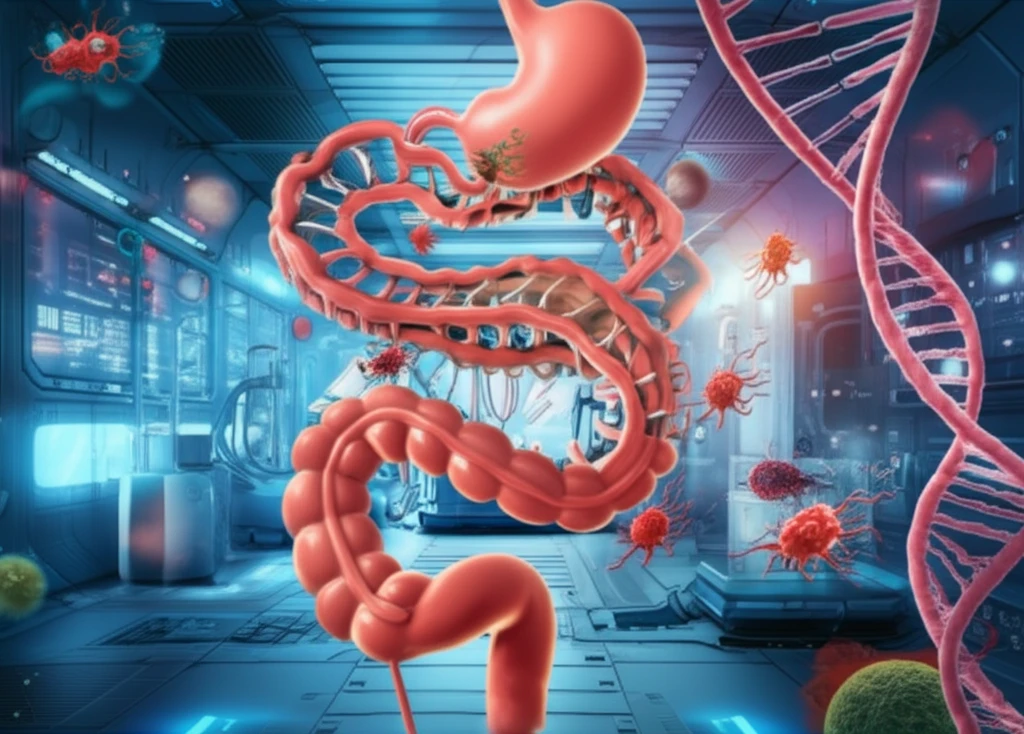
Decoding Gastrointestinal Cancer: How Molecular Testing is Changing Everything
"A guide to understanding the latest advancements in molecular testing for gastric and colorectal cancers, and how they're impacting diagnosis, treatment, and prognosis."
Gastrointestinal (GI) cancers, including gastric (GC) and colorectal (CRC) cancers, remain a significant health challenge worldwide. While traditionally diagnosed and treated based on broad characteristics, the past two decades have seen a revolution in our understanding of these diseases at the molecular level. This understanding is translating into more precise diagnostic tools and targeted therapies.
Molecular testing, which analyzes the unique genetic and molecular fingerprints of a tumor, is now a critical part of managing GI cancers. These tests help identify inherited risks, predict how a cancer will behave, and determine which treatments are most likely to be effective. This personalized approach offers the potential to significantly improve patient outcomes.
This article explores the current landscape of molecular testing for GI cancers, focusing on gastric and colorectal adenocarcinoma. We'll delve into key molecular markers, their clinical significance, and how they're guiding treatment decisions. We'll also discuss the importance of standardized testing methods and quality control to ensure reliable results, empowering patients and healthcare professionals alike.
The Power of Molecular Testing: Key Markers & Their Impact

Molecular testing has moved beyond simply identifying the type of cancer to providing a detailed roadmap of its individual characteristics. Here's a look at some key markers and their clinical implications:
The Pathologist's Pivotal Role: Ensuring Accurate and Reliable Results
The complexity of molecular testing requires expertise to ensure accurate and reliable results. Pathologists play a crucial role in:<li>Specimen selection.</li><li>Test validation.</li><li>Data interpretation.</li>
With their knowledge of cancer biology and molecular techniques, pathologists bridge the gap between laboratory findings and clinical decision-making. Their expertise ensures that molecular testing is used effectively to guide personalized treatment strategies.
As molecular testing continues to evolve, ongoing research and standardized quality control measures are essential. Collaboration between pathologists, oncologists, and molecular laboratories will drive further progress, ultimately improving outcomes for patients with gastrointestinal cancers.
